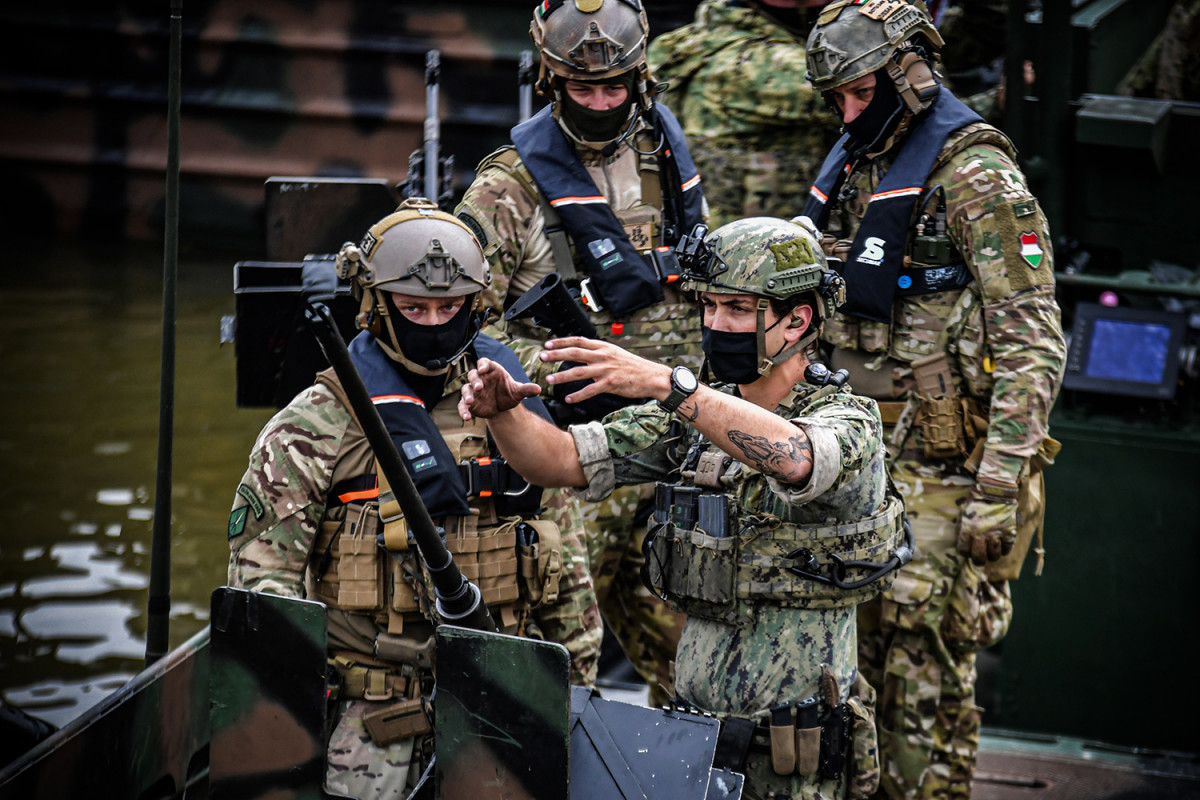Troops from seven NATO countries have begun the month-long "Black Swan 2021" special forces exercise in Hungary last week. A total of 800 soldiers, 14 planes, helicopters and several ships will take part in the seven-nation military exercise that takes place in close to a dozen locations around Hungary between April 19 and May 14.
Hungary reaffirms its strong commitment to NATO by hosting month-long special forces exercise
Strengthening our relationship with NATO and gradually increasing Hungary’s defense spending to match the level prescribed by a 2006 NATO decision are among Prime Minister Orbán’s top priorities.

Hungary’s reasons for hosting such an event are, in fact, twofold. Not only do we want to ensure that our special forces are well-trained and get every chance they can to gain top-class practical experience, but also showcase our commitment to NATO, the most successful military alliance to date. Another, some would even say more obvious, way to achieve the latter is by increasing Hungary’s defense spending to reach 2 percent of annual GDP, an amount prescribed by a 2006 NATO decision and used ever since as an indicator of a country’s political will to contribute to the Alliance’s common defense efforts.
Hungary, in fact, is among the few NATO members that lack no political will and have expressed a clear intention to finally cross the 2 percent threshold in the upcoming years. This is why the Hungarian government put in motion in 2016 the country’s biggest military development scheme to date, known as the Zrínyi 2026 program. Through Zrínyi 2026, the Hungarian Defense Forces will become the most significant in Central Europe, reinforcing our ties with NATO allies. In addition, the developments will enable Hungary to play an even more active role in Central European Defense Cooperation and in V4 as well.
Our critics would, of course, tell you that the program is merely a collection of nice words and promises, so let’s look at our results so far.
Compared to 2015, when Hungary spent a bit more than 260 billion HUF (715 million EUR), around 0.76 percent of the annual GDP on defense, by 2020 we have managed to more than double the funds allocated to Hungary’s military. By increasing the defense budget to 616 billion HUF (1.7 billion EUR), Hungary’s military expenditure reached 1.26 percent last year and is expected to cross the 1.6 percent threshold in 2021.
At this rate, Hungary will join NATO’s elite club of member states that spend beyond 2 percent of GDP by 2025.
According to experts, the increased defense budget planned under the Zrínyi 2026 program allows for a sustainable development of the defense forces. The long-term commitment to raising defense spending to 2 percent of GDP will make it possible to plan further and build a strong Hungarian army.
And a strong army is essential for Hungary to remain one of the safest countries in the world. As Prime Minister Orbán said back in 2018, “a nation that is incapable of defending itself does not deserve to be one.”
